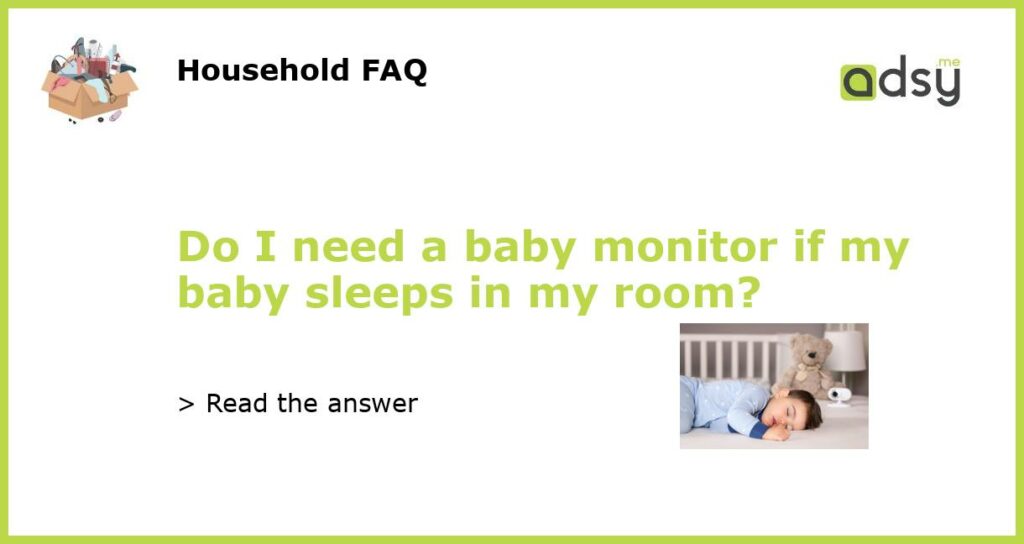Why Baby Monitors are Popular
Baby monitors have long been a popular tool for parents to keep a close eye and ear on their babies whilst they sleep. They allow parents to hear when their baby is awake or crying, without constantly checking on them physically. This provides peace of mind and allows parents to rest or attend to other tasks while their baby sleeps. With the advent of wi-fi and smart technology, baby monitors have become even more advanced, offering video monitoring, two-way communication and even sleep tracking features.
The Debate over Baby Monitors
However, many parents wonder if they actually need a baby monitor if their baby sleeps in the same room as them. After all, if you can see and hear your baby without any equipment, why shell out money for a baby monitor? The answer lies in individual circumstances and preferences. Some parents find that they sleep better knowing they can hear their baby without having to constantly check on them. Others find that a baby monitor provides an additional layer of protection and reassurance, particularly if they have a large house or live in a noisy area.
The Benefits of a Baby Monitor
There are several benefits to using a baby monitor, even if your baby sleeps in your room. These include:
- Peace of mind: knowing you can hear your baby if they wake up or need to be attended to
- Convenience: being able to monitor your baby from a different room or even outside the house
- Advanced features: many baby monitors now include video monitoring, two-way communication and sleep tracking features
- Early warning: a baby monitor can alert you to potential problems such as a fever or difficulty breathing
Alternatives to Baby Monitors
If you decide not to use a baby monitor, there are other options available to ensure your baby is safe while they sleep. These include:
- Co-sleeping: sleeping in the same bed as your baby, although this is not recommended by some experts
- Checking on your baby regularly: this can provide peace of mind, although it may disrupt your sleep patterns
- Using a motion sensor: a device that monitors your baby’s breathing and movement, and sounds an alarm if there are any irregularities
- Using a smart assistant: devices such as Amazon Echo or Google Home can play white noise, lullabies or provide other sounds to help your baby sleep
The Bottom Line
Ultimately, the decision to use a baby monitor if your baby sleeps in your room is a personal one. Some parents find it provides an extra layer of reassurance and convenience, while others find it unnecessary. If you do choose to use a baby monitor, be sure to research and choose a reliable and secure model, and follow all safety precautions.






